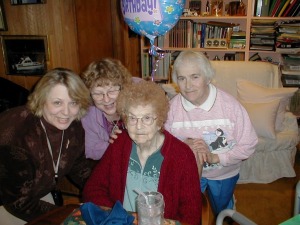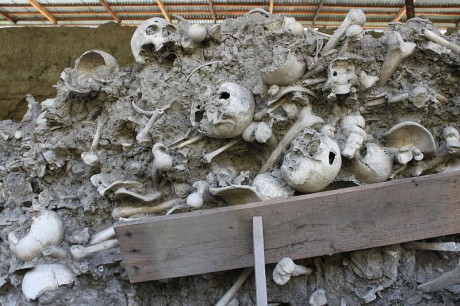By Elise Ronan – Times of Israel: Freedom. The Jewish people are consumed with freedom. From our very earliest beginnings we fought for our individuality and the right to be whom we chose to be. Abraham started it. We can blame him I suppose for imbuing in our genes the need to be independent; to think for ourselves; to rely on our individuality and abilities alone. We Jews, personify freedom. We honor freedom, independence, self-reliance and self-discovery. We promote this freedom of choice in the celebrations of Passover or Hanukkah or remembering Masada and Bar Kochba. We, the Jewish people, have always held tightly to our need to choose our own path. We love being the iconoclast.
But what do you do when everything you were brought up to believe in is threatened? What do you do when your freedom, independence and abilities are truly called into question? When that inherent need to take charge of your life is no longer part and parcel of who you are? What do you do when you know that even with all the love that you have for your child, you need help from strangers? What do you do when you realize that you cannot do it all alone? That somewhere in your soul you realize that if you love your child enough, you need to hand their future over to a “village” of people in order for your child to survive?
Now this “village” is very different than the concept of “community” in Judaism. We are a universal People, we Jews. We are distinct human beings and at the same time part of a whole community. We are the inheritors of a legacy that has shaped human history and at the same time we are individuals with wants, needs and desires. We are ourselves and at the same time we are the embodiment of all Jews.
But a village that you create for your special needs child is something totally different than a community. When you have community in Judaism you begin by saying I am a part of something. It is a positive uplifting experience that gives you pleasure, succor and direction. You begin by saying “here I am.” But that is not how special needs parenting begins. Special needs parenting begins by asking “what am I to do now?” “Where am I to go with my child?” “Who will help my child” and in the end, “who will love my child enough to care for them when I am gone?” (#youmightbeanautismparentif You may have a will and a guardian picked out, but in the end you know you can never, ever die.)
The first thing you feel, as a special needs parent is fear (yes, with alot of pissed off thrown in too). Complete unadulterated, gnawing at your heart fear. Fear that takes your breath away. It changes you. You become someone else. You are no longer the you, you knew. Your soul is consumed. And you need to acknowledge something that goes against everything you ever thought you would have to acknowledge when parenting…. You have to admit that you have no idea how to help your child. You are at a loss. You feel so abjectly alone. You feel defeated in that you must recognize your need for strangers to help and guide you in this journey.
It is an interesting epiphany when you can finally realize that you need a village to raise your child. That no, you cannot do it alone. We are taught that parenting is something we pass on from generation unto generation. It is why the jokes abound about mommalies and daddalies when talking to our children. We see and hear our parents in ourselves. But that changes when you deal with a special needs child. What worked before will not work now. What was done for generations will not help your child. The concepts that so successfully raised multitudes of human beings no longer apply. Parenting a special needs child is not innate. It is a methodical thought out, wholly planned process. It is a unique understanding of parenting.
But what is most important when you finally acknowledge that you need that village is to remember above all else, that you have NOT failed. It is not an indictment of your parenting, but an acknowledgement of what a good parent you truly are to know you need help. To recognize that you cannot always be everything to your child is important. To know that there are others out there who are capable of providing support is very important. To recognize that if your child is to succeed in life, they will need more than you can give them takes parents who see beyond themselves. It takes a type of strength, something inherent in a free and independent people, to recognize that you cannot do everything all alone. Asking for help for your child takes bravery, it gets you beyond the fear.
Parenting a special needs child is walking into an unknown future, just as the Children of Israel walked out of Egypt to a future without direction, and yes most of us do it without the missteps of the golden calf (well, as best as we can anyway). Because unlike those who waked into Sinai, we know that we cannot understand or have control over the future. We know no idols or talismans will protect our children. By recognizing that we need help we have proceeded past that initial soul crushing terror and are ready to produce a future for our children. We know we will have to do our best to create a happy and positive world in which our children can live. We know that we can create to the best of our ability, a village of people who love, nurture and support our child. We know that we can only do the best that we can, no more. We have acknowledged, stripped the confusion from our souls, because in the end we finally admit that we too are merely human.
We learn over years, days, hours, even minutes, that the trajectory of our lives can change in an instant. We understand that community is one thing and creating a “village” is another. We try to impart unto our children what we can give each of them and grasp from strangers, who can and in many ways become like family, their knowledge and compassion to help our children succeed in life. Freedom and independence is not always about being steadfast and singular in our outlook. It is not always about standing on our own two feet. At times freedom and independence is knowing, just knowing, when we know nothing at all.
One day during a support group meeting, someone asked me what I would have done earlier in my children’s lives. I think they were looking for some great explanation of how to handle issues and events and what I might have done differently. They were looking in some way for guidance on how they should process and prepare for certain problems that could arise. That of course is what I do to help people. Give them the benefit of my past experience. Practical and realistic supports that can help with the day-to-day. I knew they wanted specifics. But I also knew, that before you can have specifics, before you can create a program of support, before you can produce a village, you need to acknowledge the reality of the situation and recognize your own human limitations.
So I answered simply, “ I wish I had been braver sooner.” And I knew, at that moment, with that acknowledgment, that I was finally, truly, once again, on the path out of Egypt headed towards freedom. For the first step towards freedom is recognizing your fears. Second step is not giving in.
Related:
83 percent of brain injury vaccine compensation payouts were for autism caused by vaccines








